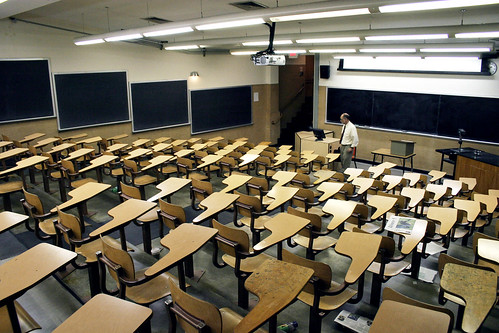The basic argument is that
laws and other social systems should be designed as though by a premortal agent whose birthplace, intelligence, etc. would all be determined by lottery. Warren Buffett describes it wonderfully in the embedded video.
Anyway, I was thinking about another aspect of the birth lottery. As Warren Buffett argues, he is very lucky to have been born in a time and place where his skills are valued and rewarded. At almost any point in human history, or in most other places in the world, being able to allocate capital is a fairly useless skill.
This made me think about how many people were not so lucky. Right now we think of the greatest painters in human history as Da Vinci, Michaelangelo, Picasso, etc. The list will certainly vary depending on who makes it. However, whatever list we make misses out on all of the people who would have been great painters, but either lived at the wrong time or place, or just never explored that skill. In fact, I would argue, it is almost certain that the (potential) greatest painter that ever lived was not a painter. Our mystery painter was born before paint was invented, or born in rural China, or most likely, she was a woman (a lottery ticket that has generally excluded half of the population from exploring many of their skills).
There is something tragic in this view of the world - for every skill, the person with the most natural aptitude almost certainly never found their calling. The greatest (potential) poet may be an unhappy accountant, the greatest pianist an Indian peasant, the greatest unicyclist a mediocre Math teacher.
This is one reason that I think capitalism is so needed - it encourages people to explore their talents in the areas that are most valuable to society. And yet, it is still wildly inefficient in the sense that the entire space of possible talents is so vast that it cannot be explored, and natural abilities are still only poorly matched with occupations.
As I was writing this post, I came across Kevin Kelly's very similar, technological version of this argument, and realized that I had read it, and it probably served as a subconscious prompt for my thinking.



